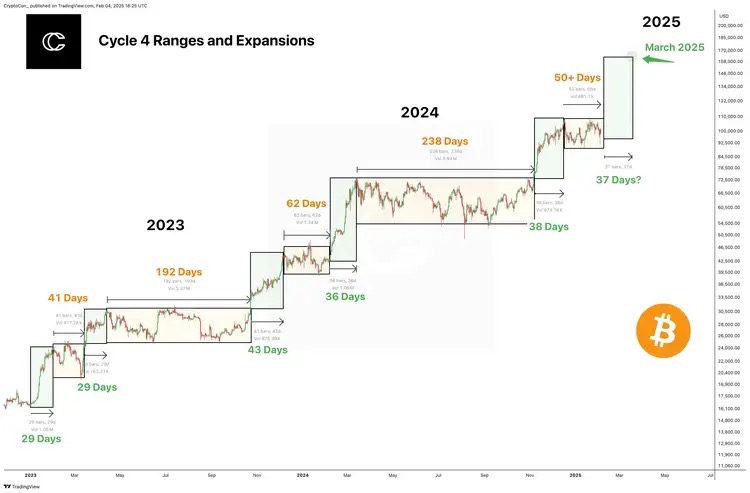Nearly 50% of Traditional Hedge Funds Now Invest in Cryptocurrencies: Report
Centralized exchanges are favored by 58% of traditional hedge funds for liquidity and ease of use.

Nearly half of traditional hedge funds now invest in cryptocurrencies, according to a survey published Thursday by the Alternative Investment Management Association and PwC. This marks a significant increase from 29% in 2023, and 37% in 2022.
This growth is driven by increased regulatory clarity and the launch of spot cryptocurrency ETFs in Asia and the US. Among the funds already invested, 67% plan to maintain their current capital levels. Meanwhile, 33% intend to invest more by the end of 2024.
The most popular digital asset strategies among traditional hedge funds are market-neutral and discretionary long-only, each adopted by 33% of respondents.
This survey was conducted in the second quarter this year. It included nearly 100 hedge funds from over six regions, managing about $124.5b in total assets.
Hedge Funds Move to Derivatives, Centralized Exchanges and Explore Tokenization
Centralized exchanges were found to be the preferred trading venues for 58% of traditional hedge funds. These platforms are favored for their liquidity and ease of use. Decentralized exchanges, used by 33%, offer greater control over assets. Over-the-counter (OTC) trading is preferred by 25%, as it allows large trades without impacting market prices.
Also, there is a notable shift towards derivative trading in digital assets. Its use rose to 58% in 2024 from 38% in 2023, while spot trading dropped to 25% after peaking at 69% last year. This shift signals growing sophistication in hedge fund strategies.

Image Source: AIMA/PwC
Interest in fund tokenization is also growing. About 33% of hedge fund respondents are committed to or exploring tokenization, up from around 25% last year. Among digital asset-focused hedge funds, 12% are already investing in tokenized assets, though regulatory challenges remain.
Many Still Reluctant to Enter Market
Despite the industry’s growth, many traditional hedge fund managers remain hesitant. Of those not currently invested in digital assets, 76% are unlikely to enter the space within the next three years, up from 54% in 2023. The top barrier, cited by 38% of funds, is the exclusion of digital assets from investment mandates.
While regulatory uncertainty remains a concern, it has eased somewhat due to clearer frameworks like the EU’s Markets in Crypto-Assets (MiCA) regulation.
Currently, family offices and high-net-worth individuals are the largest investors in digital asset-focused funds, followed by funds of funds.
In summary, the survey highlights a growing interest in digital assets among traditional hedge funds but also indicates significant barriers to wider adoption.
Disclaimer: The content of this article solely reflects the author's opinion and does not represent the platform in any capacity. This article is not intended to serve as a reference for making investment decisions.
You may also like

Meme and AI token indices plummet 50% from December peaks while US and DeFi indices show resilience
The GMMEME and GMAI indices, for example, are down nearly 60% from their peaks in December.The following is an excerpt from The Block’s Data and Insights newsletter.

Could Litecoin Be the Next Big Runner? $1.5 Billion Volume Pushes LTC Up 12%
Litecoin ($LTC) has been propelled to the forefront of the altcoin market with rumours of an ETF approval.

Pepe Coin Crashes 65% but Traders Predict a Shocking 110% Rebound
Pepe (PEPE) shows signs of an upcoming trend reversal that could produce gains of over 100%

